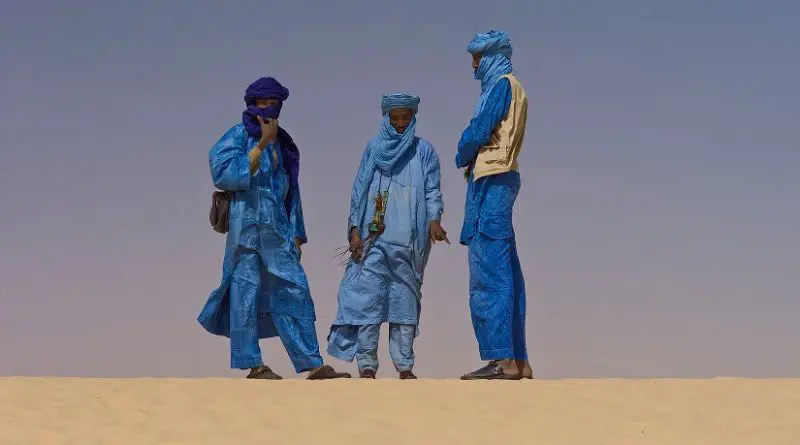Return Of Touareg Fighters Stokes Tensions In Northern Mali
By Magharebia
By Jemal Oumar
A group of Touareg fighters last week attacked government installations in Mali’s restive province of Kidal, raising fears of a fresh rebellion. The fighters set vehicles ablaze and destroyed large quantities of cement, ANI reported.
“This is the first military attack to be carried out by Touaregs since the death of their leader Ibrahim Ag Bahanga,” said Sayed Ahmed Ould Abdul Qadir, an expert in the Azaouad region, which comprises northern Mali, southern Algeria and Niger.
Meanwhile in the northern province of Gao, three Touareg officers announced their defection from the army. They were previously part of the Popular Front for the Liberation of Azaouad, a rebel movement that signed a peace agreement with the government in 1992 and was integrated into the army.
“Gao residents now live in fear that the years of lead and armed conflicts can return. Some of them said that they were harassed by the Malian army and gendarmerie after a local tribal leader was arrested,” Hassan Tiffi, who lives in Timbuktu, told Magharebia. “The security authorities subjected all people leaving or entering the city to thorough searches.”
According to media professional Abdel Hamid al-Ansari, the defections came after failed negotiations between area dignitaries and Malian President Amadou Toumani Toure.
“The Malian president rejected their demands, prompting the military officers to defect right away,” he added. The officers are now stationed 300km from the east of Gao, near the Nigerien border, al-Ansari said.
“These defections have something to do with Touaregs’ demand for autonomy in the region,” political analyst al-Moukhtar al-Salem told Magharebia. “It is an old and new demand at the same time, which gets either stronger or weaker according to international circumstances and regional alliances.”
The tensions flared two months after the government announced a development project for the northern provinces as part of its push to integrate marginalised populations and calm Touaregs who waged an armed rebellion against Mali in the late 1990s.
According to al-Salem, the project “won’t bear any fruit as long as the relation between Touaregs and Malian government is built on mistrust”. The long-simmering conflict has resurfaced after the fall of Moamer Kadhafi, who was a “strategic ally” of the Touaregs, the expert added.
“The world has realised that it’s a regional conflict that dates back to the 1960s, and that it won’t be resolved unless Algeria seriously takes part in helping to solve it,” he said. “This is because it is no less dangerous than the presence of al-Qaeda in the region.”
“The defection of those officers with their divisions and units came at a time when the area of Kidal in the northernmost part of Mali is witnessing unusual movements by pro-Bahanga Touareg fighters who are returning from Libya,” Ould Abdul Qadir added.
Ag Bahanga was known as one of the most radical Touareg rebels, who never agreed to sign the 2006 Algiers accord between the Malian government and Touareg fighters. He died in early September under suspicious circumstances. According to Ould Abdul Qadir, his supporters are now trying to resume the rebellion.
Meanwhile, Mauritanian website Aray Almostenir reported that an increasing number of Mauritanian gunmen and Malian Touaregs who fought alongside Kadhafi’s brigades are crossing the Malian borders and forming armed groups in the area.
Their military operations are still limited to northern Mali, according to the site. “Some gunmen coming from Libya have joined the remnants of Ag Bahanga’s battalion,” Aray Almonestir reported. “Meanwhile, another group went to the Malian-Mauritanian border in an attempt to form an independent battalion. However, a part of the Mauritanians are relinquishing their weapons or selling them in northern Mali and sneaking into Mauritania posed as civilians, creating new security challenges.”

